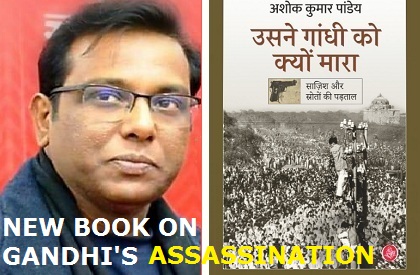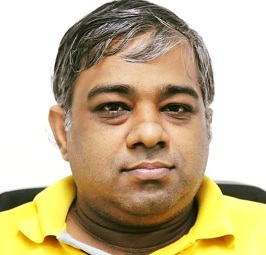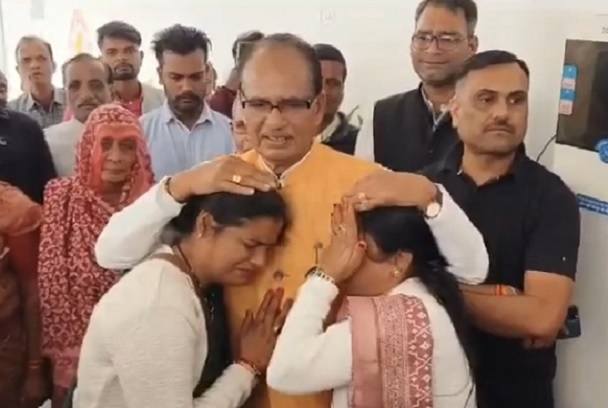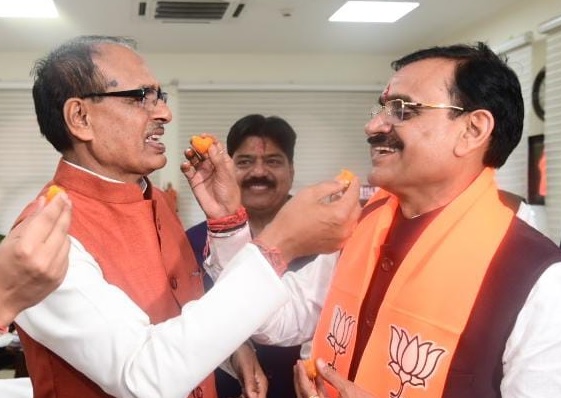Unravelling deeper mysteries around Mahatma's assassination: Usne Gandhi ko Kyoon Maara

Seven decades after Mahatma Gandhi was killed, several aspects about the assassination are still away from public eye.
'Usne Gandhi Ko Kyoon Maara' is the much-awaited book that brings to fore important facets about the conspiracy as well as information about lesser known facts and documents. Shams Ur Rehman Alavi speaks to the author about his book.
Here are six straight questions.
Q. From Gandhi's firm stand against partition earlier, followed by Congress leadership's coming round to the idea and Gandhi's acceptance later, this aspect has always intrigued people. How do you see the contradiction and have you dealt with it in this book?
Ashok Kumar Pandey: As far as Gandhi is concerned, there was no contradiction at all. He never accepted partition. The experience of combined government with Muslim League and continuous civil war kind of situations after ‘Direct Action’ call of Jinnah, frustrated congress leaders like Patel and Nehru so much that they accepted partition for a peaceful future.
Patel was the first to accept. Gandhi was in Noakhali and his questions were almost unanswered. In the working committee he was reduced to minority. No one except Khan Abdul Ghaffar Khan and Lohia opposed the proposal. Gandhi was left alone. Even masses were fed up with violence. Gandhi told more than once that no one is listening to him. Gandhi didn’t fail us, communal elements of both sides failed us.
Q. There has been a lot of hearsay about the ownership of the gun used in the assassination and the conspiracy's link to Gwalior and Eastern UP. Does the book help reader in reaching a conclusion about the mystery?
Ashok Kumar Pandey: The gun was procured by Godse from one Mr. Parchure, who was a Hindu Mahasabha leader from Gwalior. He was let off by Punjab high court on the basis of some technical faults. Three more were declared absconded and they were never ‘found.’ That’s the official story, rest as you said is hearsay.
Q. Do you feel that the government didn't take adequate measures regarding Gandhis' security and faltered in assessing threat to his life despite the attacks and similar bids in the past? Has the book thrown light on this important aspect?
Ashok Kumar Pandey: Absolutely. Justice Atmacharan, Punjab High court and then the Kapoor commission has clearly mentioned that. What was the need to ask him? He was a national asset and every effort should have been made to save him. There are serious lapses in the whole process, the book hasdiscussed it in detail through documents and archives.
Q. Does the book also provide insight into the events leading to partition and independence and the role and mindsets of important leaders of Congress and league.
Ashok Kumar Pandey: Yes. That’s an important section of this book.
Q. What new insight the book offers to those who have gone through texts on Gandhi's assassination and trial.
Ashok Kumar Pandey: It has dug deep into the archives and Kapoor Commission report. In fact, this book starts with the first attack on Gandhi in Africa and ends with his murder. I have tried to capture the ideological development of Gandhi vis a vis that of Hindutva, their inherent contradiction and resultant socio-political implications on Indian History. Along with that there is a point to point rebuttal of Godse’s allegations on Gandhi, based on historical facts.
Q. How much time and effort you put in and how many books, sources did you go through as part of the research for this book?
Ashok Kumar Pandey: The biblio contains about 70 books and few other documents along with 92 volumes of CWMS. It took about two years to research and write the book.
[Rajkamal Prakashan has published the book. It is available at book stores and online too]










